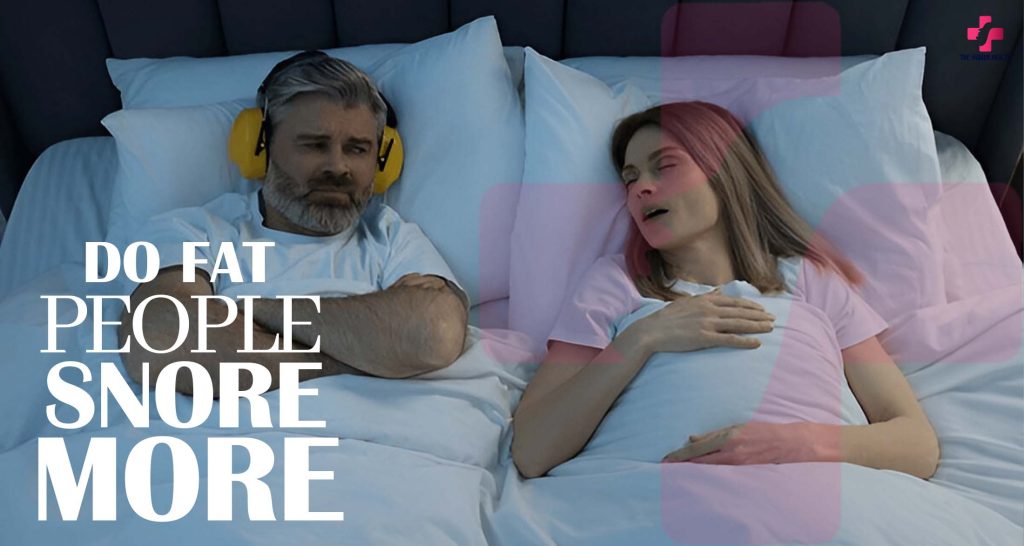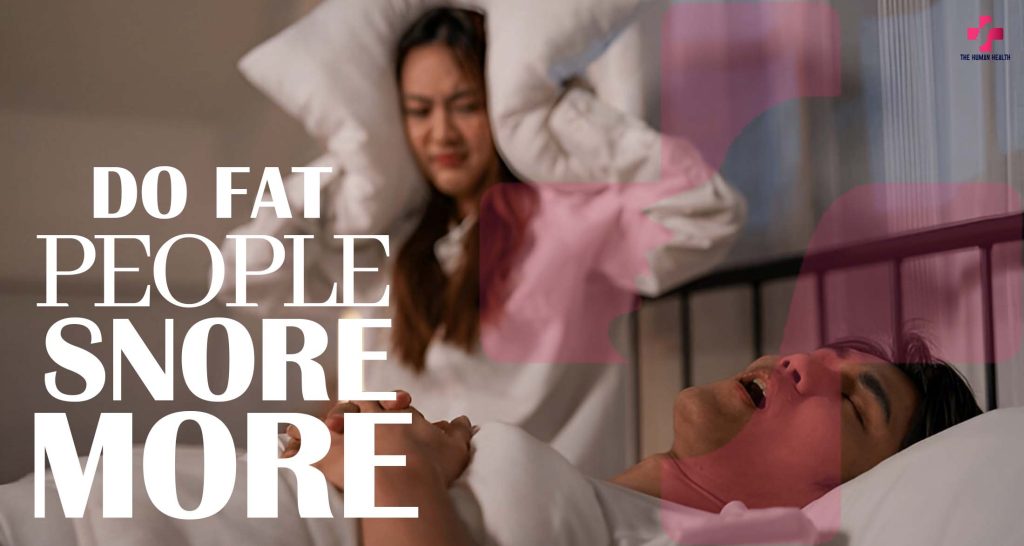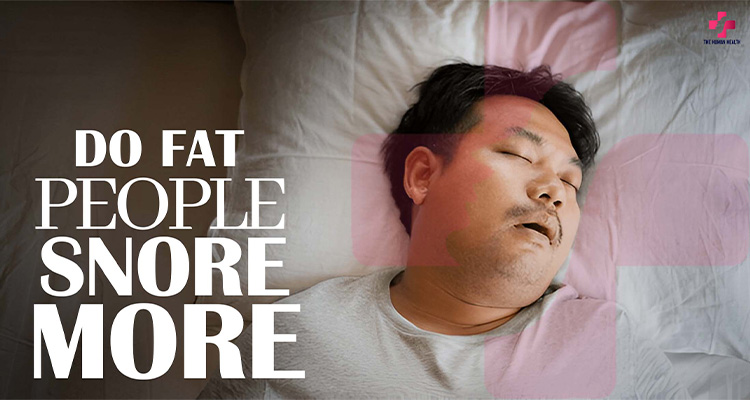Introduction
Have you ever woken up to someone nudging you in the middle of the night, complaining about your loud snores? Or maybe you’ve asked yourself, “Why do I snore all of a sudden?” If you’ve ever wondered, “Do fat people snore more?”—you’re not alone.
Snoring is something we all joke about, but when it starts affecting sleep quality (for you and your partner), it’s no laughing matter. Weight can definitely play a role, but it’s not the only reason people snore. From sleep position to nasal congestion, several factors contribute to those nighttime rumbles.
As someone who has spent nights researching snoring remedies (and testing them all!), I’ll break it down for you in the simplest way possible. We’ll explore why snoring happens, how weight impacts it, and—most importantly—what you can do about it. Ready to finally get some quiet sleep? Let’s dive in
What Causes Snoring?
Ever been told you snore like a freight train? Or maybe you’ve asked yourself, “Why do I snore all of a sudden?” Snoring happens when air struggles to move through your throat while you sleep. This makes the tissues vibrate, creating that loud, rumbling sound.
So, why does this happen? A few common reasons:
- Stuffy nose – Allergies or a cold can block your airways, forcing you to breathe through your mouth. This makes snoring worse.
- Sleep position – Sleeping on your back can cause your tongue to fall back, blocking airflow. Sleeping on your side may help.
- Lifestyle habits – Alcohol relaxes throat muscles. Smoking irritates airways. Dehydration thickens mucus. All of these can lead to snoring.
- Throat shape – Some people have a narrow airway, large tonsils, or a thicker tongue. This makes snoring more likely.
Ever wondered, “What causes snoring in males?” Men tend to snore more because they have thicker necks and different airway structures.
Now that we know what causes snoring, let’s talk about how weight plays a role. Spoiler: It does!

Does Being Overweight Make You Snore More?
Ever wonder why some people snore louder than others? If you’ve asked, “Do fat people snore more?”—the answer is usually yes. Extra weight, especially around the neck, can make breathing harder while you sleep.
When you gain weight, fat can build up around your throat. This makes your airway smaller. A narrow airway means air has to squeeze through, causing vibrations. That’s what makes the loud snoring sound.
Snoring often gets worse with weight gain. The more pressure on your throat, the harder it is to breathe. If you’ve put on a few pounds and now ask, “Why am I snoring now?”—your weight might be the reason.
Is Snoring Unhealthy?
Snoring can be annoying, but is it bad for your health? Sometimes, yes. For some, it’s just a loud habit. For others, it could mean something serious, like sleep apnea.
If you snore but wake up feeling fine, it’s likely harmless. But if you feel tired, struggle to focus, or wake up gasping, snoring could be a problem. Sleep apnea makes breathing stop and start while you sleep. It can lead to heart disease, high blood pressure, and other health risks.
Ever wondered, “Do healthy men snore?” Even fit people can snore. But loud, frequent snoring—especially at a young age—can be a warning sign. “Is snoring harmful at 18?” or “Is it normal to snore at 25?” The answer depends. If snoring affects your sleep or leaves you exhausted, it’s worth checking out.
Not sure if your snoring is just noise or a real issue? Pay attention to how you feel during the day. If you’re always tired, talk to a doctor.
Can Losing Weight Help Stop Snoring?
Ever asked, “Can losing weight help snoring?” The short answer is yes! Losing weight, especially around the neck, can help reduce snoring.
When you gain weight, fat builds up around your throat. This can narrow your airway and make it harder to breathe, causing snoring. Losing weight can open up your airway and help you breathe better at night.
So, how much weight do you need to lose to notice a difference? It varies. Many people see improvement after losing just 5–10% of their body weight. For others, it might take a little more. But even small changes can help!
Along with weight loss, other changes can make a difference. Try sleeping on your side, drinking enough water, and cutting back on alcohol before bed. If you’re wondering, “How much weight do I need to lose to stop snoring?”—start with small steps. Even a little weight loss can lead to quieter nights and better sleep!

How to Sleep With a Snorer
Ever tried falling asleep next to a human chainsaw? If your partner snores, you know the struggle. You get comfy, ready to doze off, and then—BOOM! The snoring starts. First, you ignore it. Then you nudge them. Then you shove them. Before you know it, you’re lying there, wide awake, questioning your life choices.
Snoring isn’t just a joke—it can be a real problem. Some couples even divorce over snoring! But before you start planning a bedroom escape, let’s talk about real solutions.
1. Use White Noise or Earplugs
One simple trick? Drown out the snoring! A white noise machine or a fan can help. If that’s not enough, grab some earplugs. Silicone ones usually work best!
2. Change Their Sleep Position
Snoring is worse when people sleep on their backs. Their tongue falls back, blocking airflow. If your partner snores like a freight train, try nudging them onto their side. Some even sew a tennis ball into their pajama back—sounds weird, but it works!
3. Check for Sleep Apnea
Loud, frequent snoring could mean sleep apnea—a serious condition where breathing stops and starts. If your partner snores and gasps for air, chokes, or wakes up exhausted, it’s time to see a doctor. Sleep apnea is no joke!
4. Encourage Healthier Habits
Certain habits make snoring worse. Alcohol relaxes throat muscles. Smoking irritates airways. Dehydration thickens mucus. If your partner’s snoring drives you nuts, suggest cutting back on alcohol before bed, staying hydrated, or trying throat exercises.
5. Consider Separate Sleeping Spaces
This is a last resort, but let’s be real—sometimes separate beds save relationships. If you’re getting no rest and nothing else works, try sleeping in another room a few nights a week. It doesn’t mean you love each other less! It just means you need sleep to stay sane.
Final Thoughts
Sleeping next to a snorer is tough, but the right tricks can help. Try white noise, earplugs, and adjusting sleep positions before going for separate rooms. And if snoring seems serious, encourage a doctor’s visit. Because let’s be honest—nothing beats a quiet, restful night!
Got a trick for sleeping next to a snorer? Share your tips in the comments!

Fun Snoring Myths and FAQs
Does Snoring Turn People On?
Ever wondered if snoring could actually be attractive? Spoiler: Not really! While a soft, sleepy hum might seem cute, loud snoring is usually more annoying than charming. That said, if someone loves you enough to put up with your snores, that’s a kind of attraction in itself!
Can Chewing Gum Stop Snoring?
If only it were that easy! Some say chewing gum strengthens throat muscles, preventing airway collapse. While stronger throat muscles can help reduce snoring, gum alone won’t fix it. For real results, try throat exercises, hydration, and changing your sleep position.
At What Age Does Snoring Become a Problem?
Snoring can start at any age, but it gets more common as we get older. Kids, teens, and young adults can snore, too—especially if they have allergies, a cold, or large tonsils. But if you’re snoring loudly and often in your 20s or 30s, it’s worth checking if weight, sleep apnea, or other health factors are involved. If you’re asking, “Is snoring harmful at 18?” or “Is it normal to snore at 25?”—the key is how you feel during the day. Always tired? Time to see a doctor.
Got more snoring myths you want busted? Drop them in the comments!
How to Stop Snoring Permanently
Tried every snoring trick, but nothing works? If you’re serious about stopping snoring for good, go beyond quick fixes. Here’s what actually helps:
1. Lose Weight (If Needed)
Extra weight, especially around the neck, can put pressure on your airway, making snoring worse. If you’ve wondered, “Can losing weight help snoring?”—the answer is yes! Even losing just 5-10% of your body weight can make a difference.
2. Adjust Your Sleep Position
Sleeping on your back makes snoring worse. Try sleeping on your side instead. If you struggle to stay in position, a body pillow or anti-snore sleep aid might help.
3. Stay Hydrated
Dehydration makes throat mucus thicker, increasing snoring. Aim for at least 8 glasses of water a day, especially if you live in a dry climate or breathe through your mouth at night.
4. Strengthen Your Throat Muscles
Weak throat muscles collapse more easily, leading to snoring. Singing, playing a wind instrument, or doing simple throat exercises (like repeating “ahh” or practicing tongue movements) can help.
5. Avoid Alcohol and Sedatives Before Bed
Alcohol and some medications relax throat muscles too much, worsening snoring. If you drink, stop at least 3-4 hours before bedtime.
6. Try Medical Treatments
If lifestyle changes don’t help, there are medical options:
- CPAP Machine – For sleep apnea, a CPAP (Continuous Positive Airway Pressure) machine keeps your airway open while you sleep.
- Oral Devices – A dentist can fit you with a mouthpiece that repositions your jaw to keep your airway open.
- Surgery – In extreme cases, procedures like removing excess throat tissue or adjusting the soft palate may help.
7. When to See a Doctor
If you snore loudly, gasp for air, or wake up exhausted, check for sleep apnea. Left untreated, sleep apnea can lead to heart disease, high blood pressure, and other health issues. If snoring causes daytime fatigue or affects your partner’s sleep, don’t ignore it—get professional advice.
Final Thoughts
Stopping snoring permanently takes more than a quick fix. Losing weight, adjusting your sleep position, staying hydrated, and strengthening your throat muscles can help. And if snoring is severe, medical treatments are available.
Have you found a snoring solution that worked for you? Share it in the comments!

Final Thoughts
So, do fat people snore more? Yes, weight can make snoring worse, but it’s not the only reason. If you’ve been thinking, “Why am I snoring now?”—it could be anything from your sleep position to allergies or even having a drink before bed.
The good news? You don’t have to live with snoring. Small changes—like sleeping on your side, drinking more water, and losing a little weight—can help. If snoring is ruining your sleep (or your partner’s sanity!), now’s the time to do something about it.
Try these tips tonight and see if they work. If snoring still keeps you (or your partner) awake, a doctor can help. Everyone deserves a quiet, restful night!
Got a snoring hack that worked for you? Drop it in the comments!
Snoring FAQs
1. Do people who are overweight snore more?
Yes, extra weight around the neck can block your airway and cause snoring. Losing some weight can help reduce snoring.
2. Why did I start snoring all of a sudden?
Sudden snoring can happen from weight gain, allergies, a stuffy nose, alcohol, or your sleep position. Finding the cause can help you stop it.
3. Is snoring bad for you?
Snoring is usually not harmful, but loud, frequent snoring may mean sleep apnea. Sleep apnea can lead to serious health problems, like heart disease.
4. Can losing weight stop snoring?
Yes, losing weight, especially around the neck, can open up your airways and reduce snoring. Losing even a little weight can help.
5. Can my sleep position affect snoring?
Yes, snoring is worse when you sleep on your back. Try sleeping on your side to help keep your airway open and reduce snoring.
6. Does alcohol make snoring worse?
Yes, alcohol relaxes your throat muscles, making snoring worse. It’s best to avoid drinking alcohol before bed.
7. Is snoring a sign of sleep apnea?
It can be. If you snore loudly, gasp for air, or feel very tired during the day, you may have sleep apnea. See a doctor to find out.
8. Can being dehydrated cause snoring?
Yes, dehydration can thicken mucus in your throat, which can worsen snoring. Drink plenty of water throughout the day to stay hydrated.
9. Can exercises help with snoring?
Yes, doing throat exercises like singing or moving your tongue can help strengthen your airway muscles and reduce snoring over time.
10. When should I see a doctor about my snoring?
If you snore loudly, feel tired during the day, or your snoring disrupts your sleep, see a doctor. It could be a sign of sleep apnea.

Authorize Advisor
Dr. Satish Babu K
MBBS, MS, DLO
Dr. Satish Babu K is an ENT (Ear, Nose, and Throat) consultant with extensive experience in surgical & medical management. Dr. Satish Babu K practices at Manipal Hospitals located in Sarjapur Road, Bangalore with 27 years of overall experience. He is proficient in treating disorders of the oral cavity, upper pharynx, larynx (voice box), ear, face, nose, nasal passage, and neck. Dr. Satish Babu K’s expertise lies in various areas, including micro ear surgeries for impaired hearing, discharging ear, deafness, facial paralysis, vertigo, and tumors
Call : 1800 102 5555
Email : info@manipalhospitals.com
Do Fat People Snore More Do Fat People Snore More Do Fat People Snore More Do Fat People Snore More Do Fat People Snore More Do Fat People Snore More Do Fat People Snore More Do Fat People Snore More Do Fat People Snore More Do Fat People Snore More Do Fat People Snore More
Do Fat People Snore More Do Fat People Snore More Do Fat People Snore More Do Fat People Snore More Do Fat People Snore More Do Fat People Snore More Do Fat People Snore More Do Fat People Snore More Do Fat People Snore More Do Fat People Snore More Do Fat People Snore More Do Fat People Snore More Do Fat People Snore More Do Fat People Snore More


